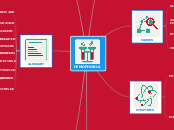
HEMOPHOBIA

DEFINITION
Hemophobia is an extreme and irrational fear of blood. People who have this fear also are used to be dreaded of injuries, cuts and syringes. It is part of the subtype “blood-injection-injury” phobias by the Diagnostic and Statistical Manual of Mental Disorders.

CAUSES
GENETICS
Some people are more likely to develop phobias than others. There may be a genetic link, or you may be particularly sensitive or emotional by nature.
ANXIOUS PARENT OR CAREGIVER
You may learn to fear something after seeing fear patterned. For example, if a child sees their mother is fearful of blood, they may develop a phobia around blood, too.
OVERPROTECTIVE PARENT
Some people may develop a more generalized anxiety. This may result from being in an environment where you were overly dependent on an overprotective parent.
TRAUMA
Stressful or traumatic events may lead to a phobia. With blood, this may be related to hospital stays or serious injuries involving blood.

SYMPTOMS
PHYSICAL
trouble breathing
rapid heart rate
rightness or pain in chest
shaking or trembling
sweating
EMOTIONAL
extreme feelings of anxiety or panic
overwhelming need to escape situations where blood is involved
feeling like you’ve lost control
feeling powerless over your fear
feeling like you may die or pass out

TREATMENT
EXPOSURE THERAPHY
Look for a therapist who guide you exposing your fear. You can participate in visualization exercises or dealing with your fear of blood head-on.
COGNITIVE THERAPY
Identify feelings of anxiety around blood and replace it with more realistic thoughts of what may actually happen during injuries involving blood
RELAXATION
Deep breathing or yoga can help to overcome fears. Relaxation techniques can help you lose your stress
APPLIED TENSION
It is a method of therapy in which you should tense muscles in the arms, torso and legs for a specific time until your face feels flushed. This technique was tested and the 90% of the participants could see a surgery without fainting.
MEDICATION
This treatment is just for severe cases and it is an option that people who see the psychiatrist must talk about.

REFERENCES

GLOSSARY
REWARD
Something given or received for services done, for doing something of merit, etc.
ASHAMED
Feeling shame; distressed or embarrassed by feelings of guilt, foolishness, or disgrace
SURGERY
Treatment, as an operation, performed by a surgeon
FLUSHED
To get redden
EXPOSURE
The act of exposing or the state of being exposed
POWERLESS
Lacking power to act; helpless
OVERWHELMING
Very powerful
PATTERNED
A recognizable combination of actions, qualities, etc., characteristic of a particular person or population.
DREADED
Greatly feared;frightful
SYRINGE
A small tube with a narrow opening and a rubber bulb or other device for drawing in or squirting out fluid, esp. through a needle

ADVICES
GET CONTROL OF YOUR IMAGINATION
Don’t let your imagination overcome your positive attitude, try to suppress the bad things that could happen.
ATTEND A SUPPORT GROUP
Talk with other people who can understand you would help a lot since they know exactly what are you feeling and can give you some advices.
KNOW THAT BEING AFRAID IS NORMAL
Don’t be ashamed of being afraid, fear has helped humans survive in many situations. Accept and love yourself
POSITIVE THOUGHTS
Start by visualizing you in the situation and try to be relaxed. Imagine things that make you keep calm and good memories. Nothing is going to hurt you.
CONFRONT YOUR FEAR AND REWARD YOURSELF
To lose the fear you should be brave and start by little actions and congratulate yourself for all the good reactions on crisis occasions.
